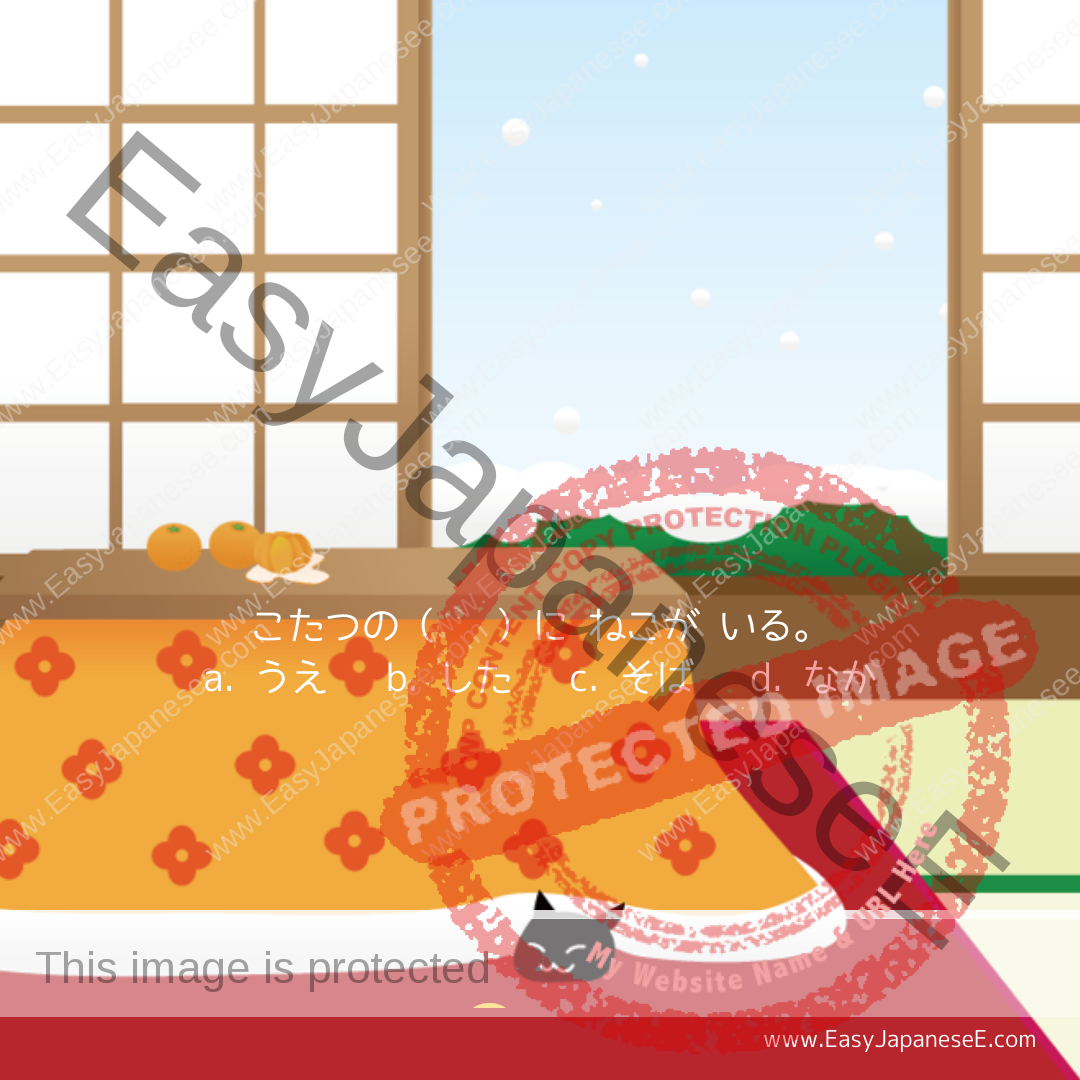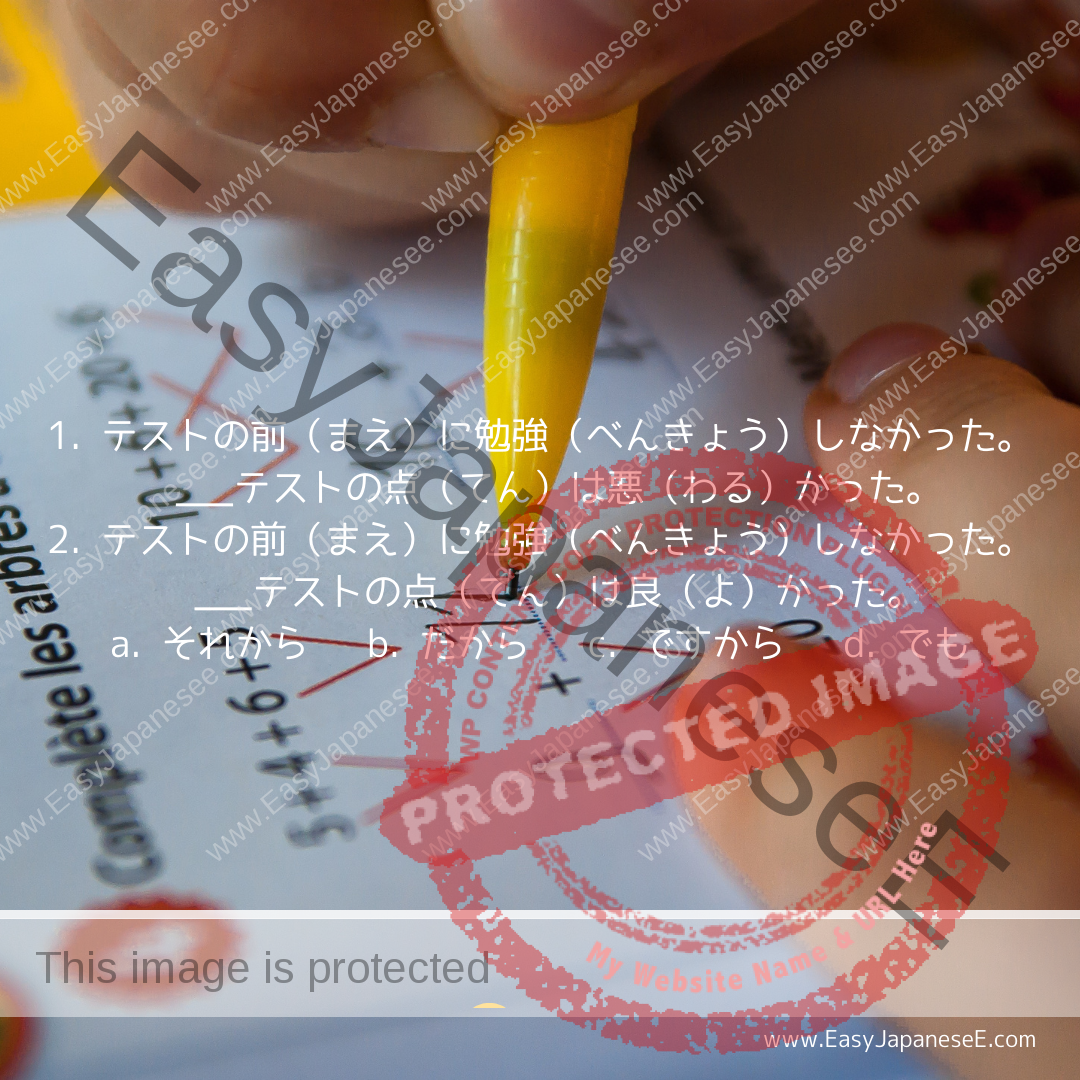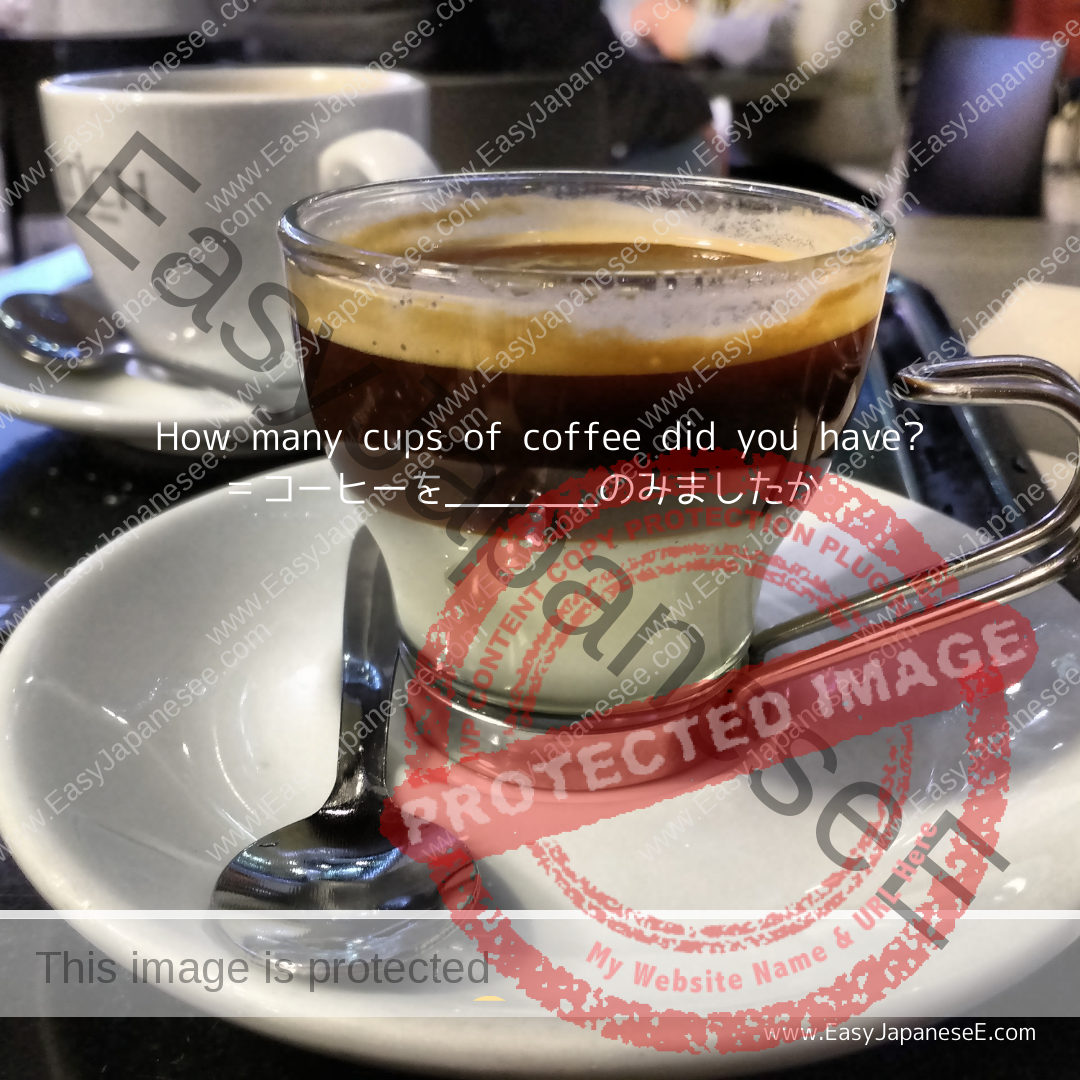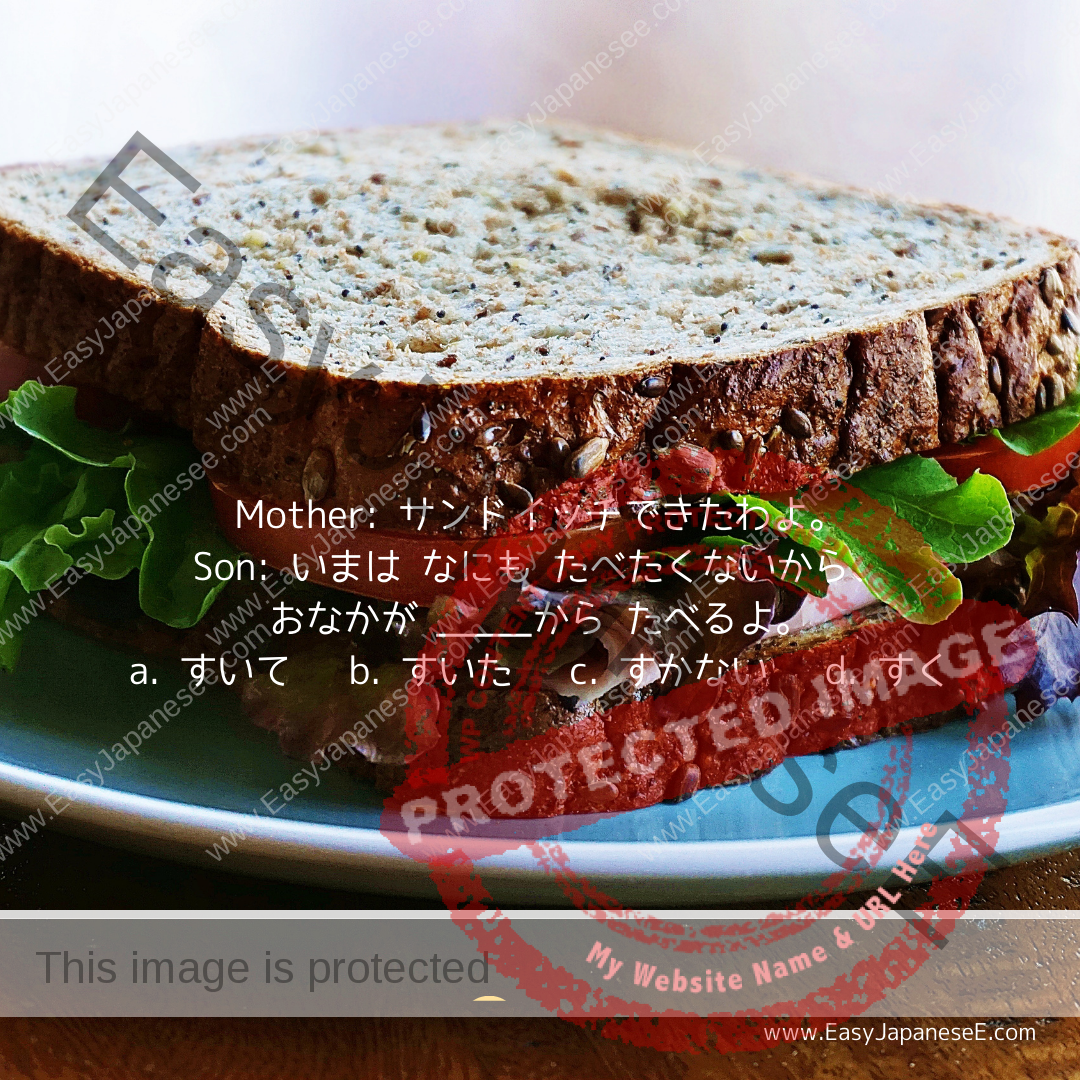Connection [noun] は [いadjective stem] かったです。(いadjective stem means an いadjective without the last い)[noun] は [なadjective] でした。[noun] は [noun] でした。…


Connection [noun] は [いadjective stem] かったです。(いadjective stem means an いadjective without the last い)[noun] は [なadjective] でした。[noun] は [noun] でした。…

This post explains how to change polite form sentences “~は・・・かったです” or “~は・・・でした” (in English ~ was・・・) into the plain form in Japanese.

This post explains how to translate “~wasn’t/weren’t・・・” into the plain form Japanese. There are a few different correct patterns.

This post explains how to translate “~ am/are/is NOT・・・” into the plain form Japanese.

This post explains how to translate “~ am/are/is・・・” in the plain form Japanese. You need to be careful we don’t use だ after an いadjective.

こたつの( )に ねこが いる。a. うえ b. した c. そば d. なか Before I talk about the answer, I’d better explain…

Many people learned と is the same as the English “and” which connects 2 nouns. This post explains when you cannot use と to connect 2 nouns.

テストの前(まえ)に勉強(べんきょう)しなかった。 テストの点(てん)は悪(わる)かった。 テストの前(まえ)に勉強(べんきょう)しなかった。 テストの点(てん)は良(よ)かった。a. それから b. だから c. ですから d. でも Intended meanings are: 1. I didn’t study before the…

数学(すうがく)はつまらないですが、日本語(にほんご)はおもしろいです。= 数学(すうがく)はつまらない___、日本語(にほんご)はおもしろいです。a. から b. けれど c. し d. ので The meaning is Mathematics is boring but Japanese is interesting. So…

はなこさんは きれい_と おもいます。a. だ b. な c. に d. nothing, leave it blank The intended meaning is I think that…
![きのう [ ] [ ] [ * ] [ ] は しょうがっこうの クラスメートです。](https://www.easyjapanesee.com/wp-content/uploads/2020/12/201210-京都であった友達.png)
きのう [ ] [ ] [ * ] [ ] は しょうがっこうの クラスメートです。a. あった b. きょうと c. で d. ともだち The…

京都(きょうと)で友(とも)だち_会(あ)いました。a. と b. で c. を d. の The intended meaning is: I met up with my friend in Kyoto.…
![[てform]は + だめ だ/です](https://www.easyjapanesee.com/wp-content/uploads/2020/12/201208-だめ.png)
日本(にほん)では電車(でんしゃ)の中(なか)で電話(でんわ)で話(はな)しては( )です。a. いい b. オーケー c. だめ d. なれ The intended meaning is: “You must NOT talk on the phone…

明日(あした)は会社(かいしゃ)_パーティーがあります。a. で b. を c. は d. に If you have picked d. に because the verb is あります, then…

This post explains how counters are used in Japanese and lists commonly used counters with their question form as well. Bookmark the page for future reference.

から has many meanings but all beginners need to remember the difference between ~てから and ~たから. Check these example sentences.

This page explains how to express “obligation”, i.e. “must ~” or “have to ~.” In Japanese it is expressed in double negative.

この やさいは あんぜんだ_ テレビで いって いる。a. で b. を c. と d. に The intended meaning is: They are saying…

チョコレートが好(す)きだけど、太(ふと)るから食(た)べない。チョコレートが好(す)き__、太(ふと)るから食(た)べない。a. が b. だが c. ですが d. なが The intended meaning is: I like chocolate but as I don’t eat…
![ふだん [ ][ ][ * ][ ]に あります。](https://www.easyjapanesee.com/wp-content/uploads/2020/10/201027-Contact-Clause.png)
Which word fits in the 3rd brackets?ふだん [ ][ ][ * ][ ]に あります。a. あそこ b. おさら c. つかわない d.…
